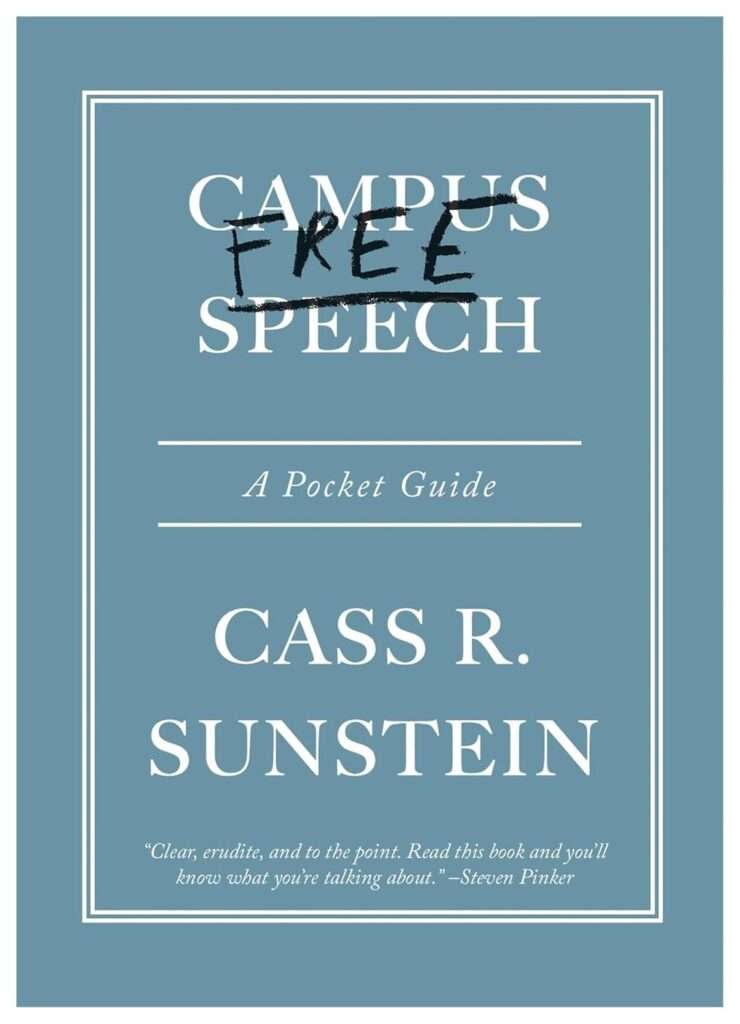
Public colleges and universities must follow the First Amendment. Private colleges and universities do not (although states can choose to enforce the First Amendment requirements, as California has generally done). However, if private colleges choose to follow the First Amendment, life will be much easier and better for faculty, administrators, and students.
One reason is that the principles of the First Amendment make most cases easier.
The First Amendment does not protect against plagiarism, sexual harassment, or real threats (“If I see you in a restaurant again, I’m going to hurt you”). At the same time, the First Amendment protects a wide range of views, including those that many people find offensive, hurtful, insulting, or degrading.
If someone on campus says, “Capitalism is racist,” or “Israel should never have been founded,” or “Democrats are communists,” or “January 6, 2021 should be a national holiday,” or “Russia absolutely must do it,” or “Affirmative action is the worst kind of racism,” the First Amendment does not permit regulation.
There are still many difficult cases, and many of the most difficult cases arise when a college or university argues that the restrictions are justified by its educational mission.
In some cases, such restrictions may indeed be justified. A university may instruct a history professor to teach history, not physics, in a history class. That is a form of content discrimination, and that is okay.
A university can deny tenure to a law professor whose published work is entirely science fiction. This is also a form of content discrimination, and that is also okay. A university can tell students that they must write papers and exams on a given topic, not on a topic that interests them.
We can go much further. Colleges can require students and faculty to respect each other. If a student repeatedly calls another student an idiot or an idiot during class, disciplinary action is almost certainly warranted. If a professor repeatedly says the f-word during class in response to a student’s comment that is confusing or unhelpful, disciplinary action is almost certainly warranted.
The government cannot mandate courtesy, consideration, and respect, but institutions of higher education can at least be specific about what they have in mind, and at least when dealing with extreme cases.
One can imagine cases where generally hateful viewpoint discrimination is tolerated, again for the sake of educational mission.
Suppose a law school believes its faculty is comprised of people with left-wing views, particularly in constitutional law. Could the law school decide to prioritize right-wing views when hiring?
The answer is almost certainly yes. Law schools may decide that they want to ensure diversity of perspectives for the benefit of both faculty and students without violating First Amendment principles.
But there are more difficult cases.
Suppose a physics professor says, “Men are better at physics than women. The subject is much easier for them.” Suppose the professor says that in class. The university may think that the professor is not doing his job if he says that women students are more likely to have a hard time taking the subject.
The First Amendment principle does not prohibit a university from taking steps to ensure that a professor can do his or her job. Certain kinds of speech in class may be restricted, even if the restriction is a form of viewpoint discrimination. (A professor cannot be disciplined for saying that male and female students can do equally well in physics.)
If a professor says something like this outside of class, the argument is weakened. The professor does not lose the right to express his or her opinion. But there is not much law on such matters. (I argue a lot.) Campus Free Speech.)
We know that the government can limit employee speech if the restriction is reasonably justified by the government’s legitimate interests as an employer. If an official in a policy-making role at the State Department says that the United States is terrible in every way and that China and Russia are both excellent and beyond reproach, the First Amendment does not prohibit suspension or firing.
So when a professor says something that makes it difficult for a university to teach students, we are going to have to ask difficult questions. But the slippery slope problem is serious here. There are countless imaginable views expressed outside of class that could upset, or in some sense exclude, or demoralize some students. Consider the following: (1) “Religion is the opium of the people.” (2) “Atheists have no morality.” (3) “Liberalism is anarchy.” (4) “Hunting should be a crime.”
I have focused on faculty and staff comments, but the question of whether the educational mission justifies special restrictions also applies to administrators and students.
Suppose the dean of admissions were to create a sexually explicit video, or that students were to form a group celebrating the Confederacy or supporting Hitler, we can easily imagine some or all of the institution arguing that the speech actually undermines the educational mission.
I think it’s best for colleges to start with a presumption that they support freedom. But as they say, general propositions don’t determine specific cases. Adopting First Amendment principles makes most cases easier, but not all cases easier.






